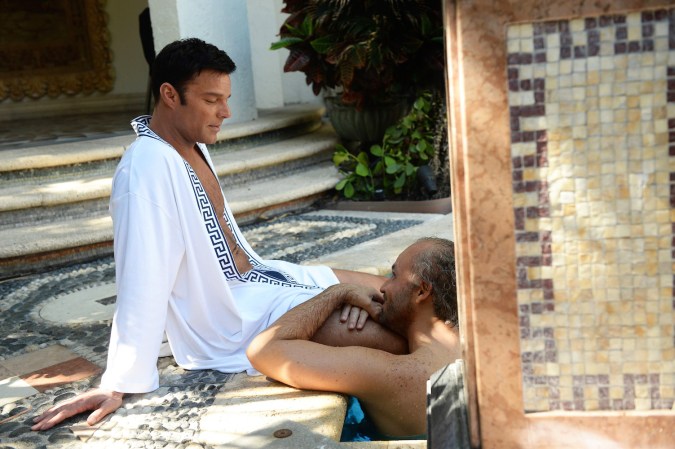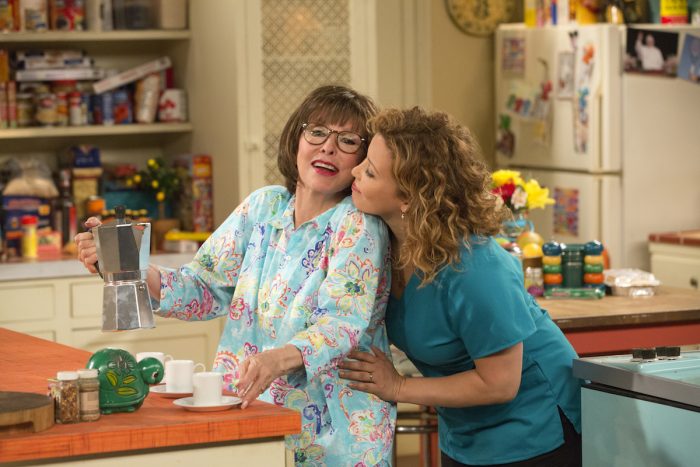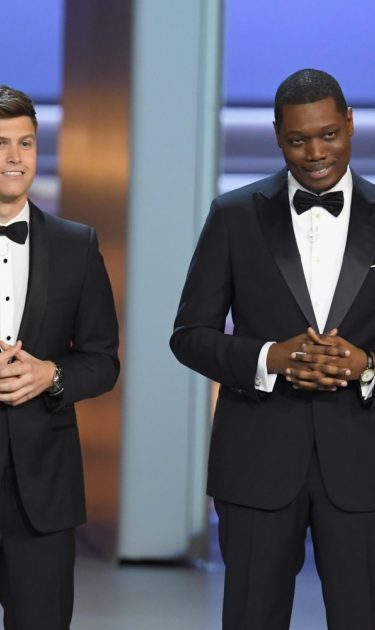Here was a fun drinking game to have played at last night’s Emmy Awards: take a shot every time someone says the word “diversity.” By the first hour you’d already have been passed out, what with presenters and hosts alike bandying the word around to the point where it lost all meaning. This year had, we kept being told, the most diverse slate of nominees in Emmy history. But, as the opening song performed by Kate McKinnon, Kenan Thompson, Tituss Burgess, Kristen Bell, Sterling K. Brown, with a cameo by Ricky Martin himself, pointed out, the issue of diversity has not yet been “solved.” In fact, Latino actors could’ve told you that going into the show.
The 70th Emmy Awards were, by all measures, more diverse (oy, there’s that word again) than in years past. Last weekend at the Creative Emmys, for example, all Guest Acting trophies had been claimed by black actors. Killing Eve’s Sandra Oh went into the night as the first Asian actress to be nominated in the Outstanding Performance by a Lead Actress in a Drama Series (she lost to The Crown’s Claire Foy), while a whopping three Latino actors were cited alongside one another in the Outstanding Performance by a Supporting Actor in a Limited Series or Movie (they all lost to Godless’ Jeff Daniels). This was progress, for sure. But as usual, Latino actors and TV shows were nowhere to be found amongst the winners.
In a pre-recorded bit that was surely the highlight of Colin Jost and Michael Che’s lackluster hosting duties last night, Che went around giving out “Reparations Emmys” to African-American performers that had been ignored by the Academy in the past 70 years. He showed up with trophies for Jaleel White (yes, Steve Urkel himself), The Jeffersons’ Marla Gibbs and Martin’s Tichina Arnold, among others. The message was hard to miss: we may have gotten far but there have always been clear biases in what the Television Academy nominates and deems worthy of an award. We may currently be seeing that firsthand when it comes to shows for, about, and by Latinos.

This year may have seen Édgar Ramirez, Ricky Martin (both playing Italian in the Emmy-winning The Assassination of Gianni Versace: American Crime Story), John Leguizamo, Alexis Bledel, and Lin-Manuel Miranda nominated, but it’s telling that their roles and shows never quite addressed the Latinx experience. Here is where Che’s Reparations bit was most insightful: shows about the African-American experience like Family Matters and The Wayans Bros have sometimes had to fight harder to be recognized. So even while individual Latinos have triumphed in the past few years (America Ferrera’s win for Ugly Betty comes to mind), they tend to be the exception rather than the rule.

If anything the continued indifference of the Television Academy to the CW’s Jane the Virgin and of its star Gina Rodriguez (who always gets invited to present, reminding us how funny she truly is) is reason enough to think that there might be a cultural barrier here at work. Or, take Starz’s Vida. The critically acclaimed show created by Tanya Saracho earned great reviews when it premiered (“Life may be too short, but Vida is just right,” wrote The New York Times) and cemented itself as a banner series for Starz, offering the kind of well-crafted dramedy about current issues that the Emmys tend to reward. Nevertheless, by the time Emmy nominations came about, the freshman show found itself with zero nominations to its name.
In both those cases, it may be the networks which are earning the bias: both Starz and the CW have horrible track records when it comes to Emmys. The awards continue to be dominated by the likes of HBO, Showtime, FX, and more recently Hulu, Amazon, and Netflix. Which brings us to One Day at a Time. The Cuban-American reboot of the classic family sitcom entered its second season with, as Vida, some stellar reviews that praised it for both its heart and its humor. Its home at Netflix guaranteed that it’s widely available and, with the inclusion of EGOT-winner Rita Moreno, there was no reason to think it would once again earn just a single Emmy nomination (for Outstanding Multi-Camera Picture Editing for a Comedy Series to Patricia Barnett). Nothing for Moreno, nothing for leading lady Justina Machado, nothing for the funny scripts dealing with timely issues around citizenship and sexuality. And that’s arguably quite the snub considering Netflix garnered the most nominations of any network with 112.

The list of Latino-centered shows that have gotten little to no love is long enough to suggest this is no mere coincidence.
The list of other Latino-centered shows that have gotten little to no love is long enough to suggest this is no mere coincidence. In its first three seasons, Narcos earned a measly three nominations while shows like Queen of the South and Roberto Aguirre-Sacasa’s Riverdale have never earned any. And Orange is the New Black, which ushered in a slew of Latina performers like Dascha Polanco, Diane Guerrero, Jackie Cruz and Selenis Leyva into our lives, and was once an Emmy powerhouse (though never garnerning any individual noms for these talented ladies) found itself ignored altogether this year. Considering only a few Latinos won Creative Arts Emmys for their behind-the-camera work (including Carlos Rafael Rivera for composing Godless‘ theme music and both Hector Pocasangre and Gabriel Villarreal for hairstyling on RuPaul’s Drag Race), it again becomes clear that Latino-centered stories are not garnering statuettes.
There is, as always, some hope on the horizon. This Fall season promising us plenty more Latino talent in front of the camera (“reboot, but make it Latino” is apparently an easy way to get your show greenlit this year). And the coming development season shows signs that Latino writers are getting their scripts seen and produced as pilots. For this really is an issue that doesn’t begin or end with awards. After all, as Viola Davis put it when she picked up her historic Emmy award in 2015, “You cannot win an Emmy for roles that are simply not there.”




